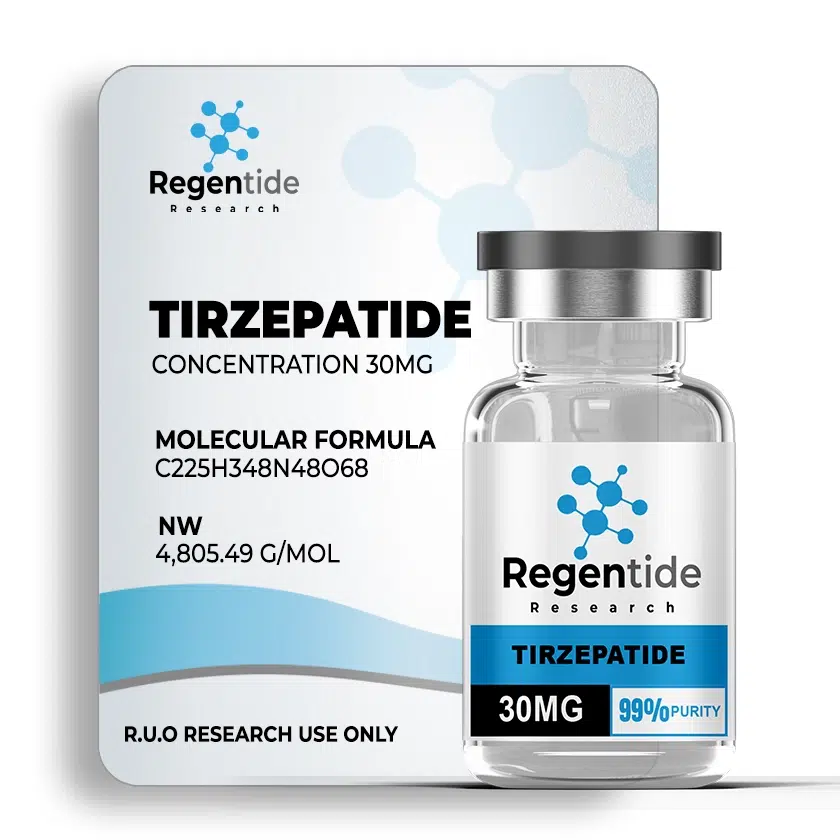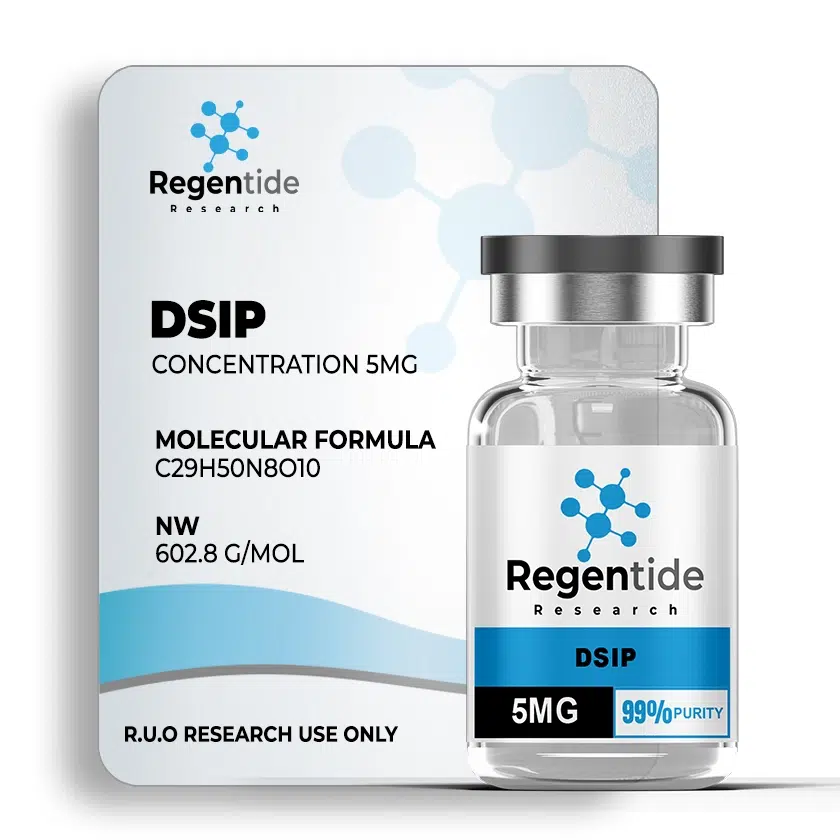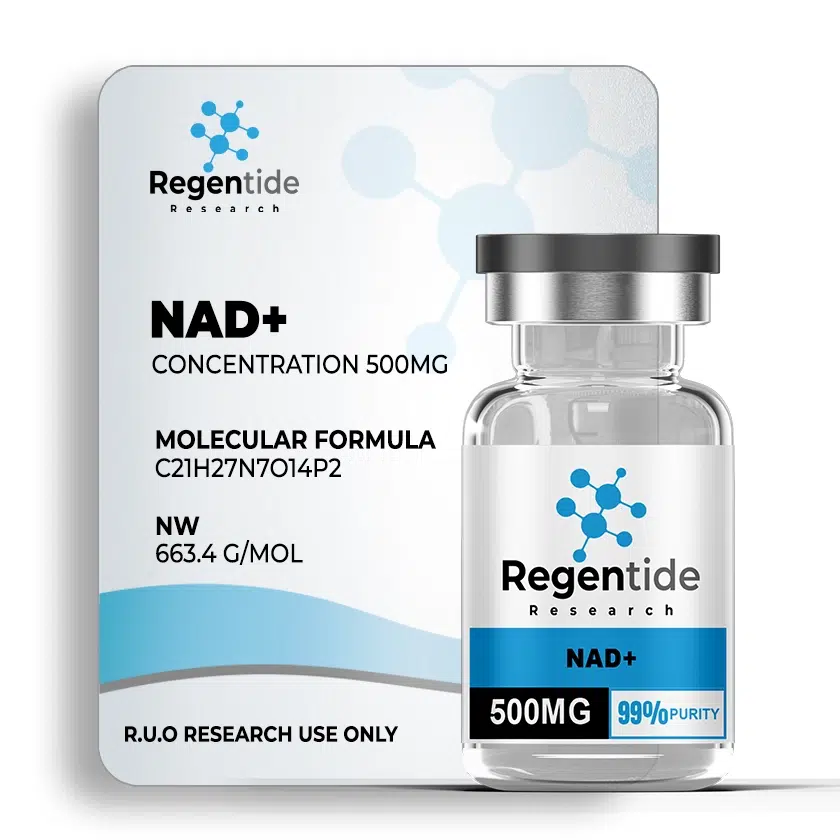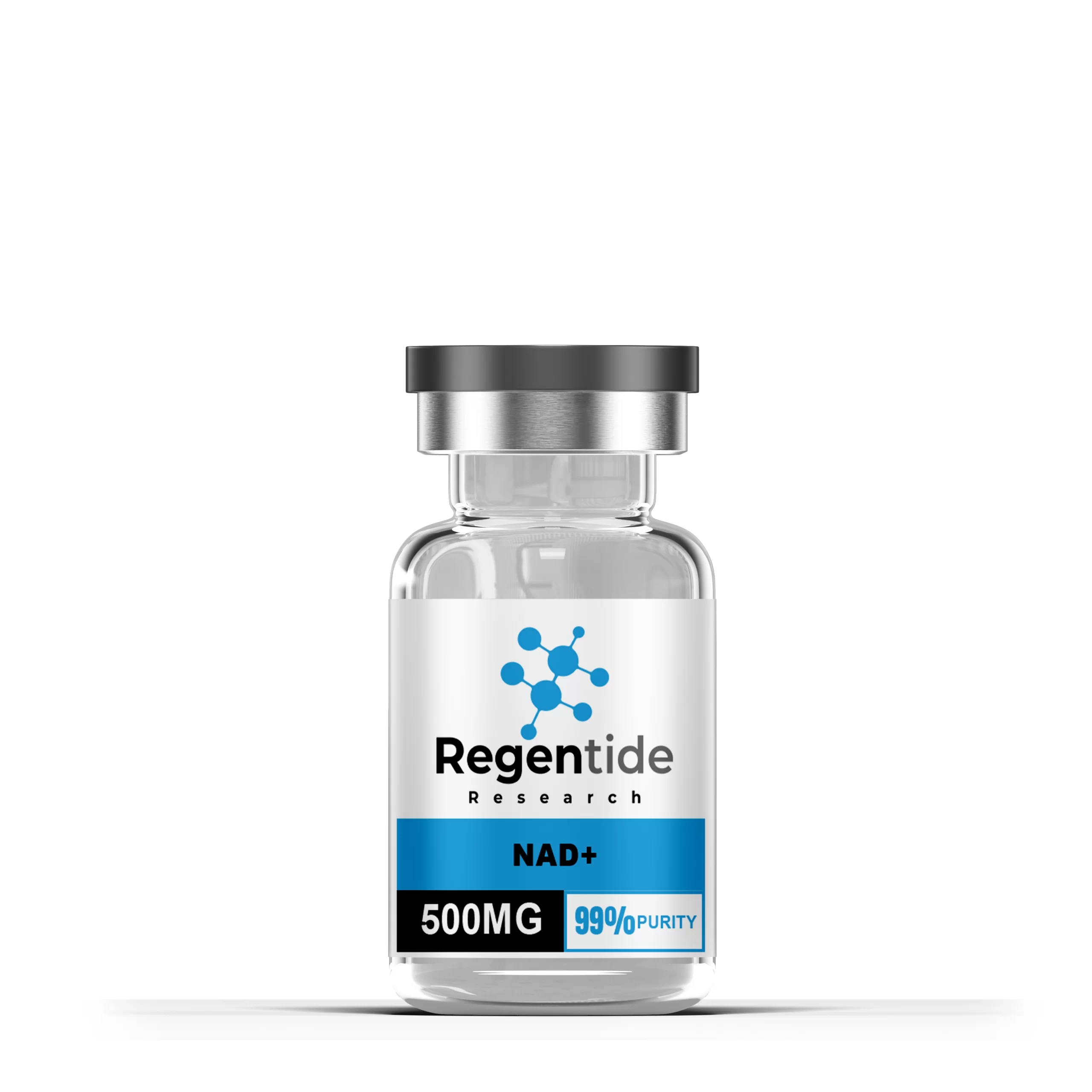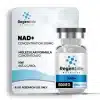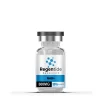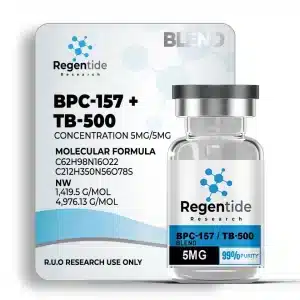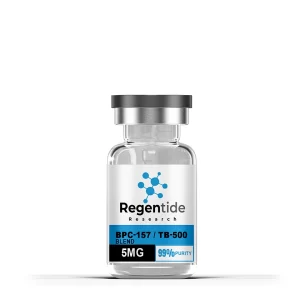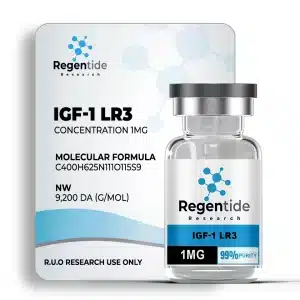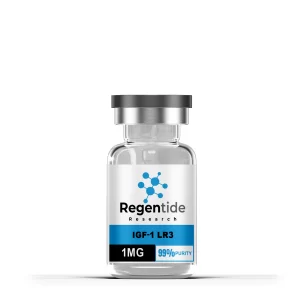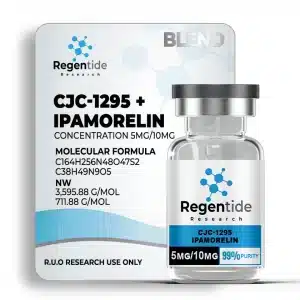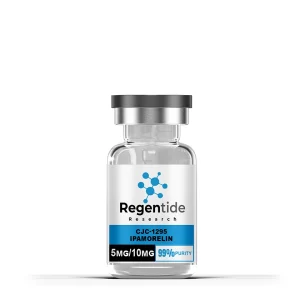NAD+ 500mg
Original price was: $149.99.$112.99Current price is: $112.99.
NAD+: Nicotinamide Adenine Dinucleotide (NAD+) is a critical coenzyme found in all living cells that plays a key role in energy metabolism, DNA repair, and cellular communication.
Description
NAD+ is a fundamental molecule involved in redox reactions, transferring electrons between molecules to support essential cellular functions. It is also a substrate for key enzymes, including sirtuins and PARPs, which regulate DNA repair, gene expression, and aging-related processes.
Key Features:
- Energy Production: NAD+ is essential for converting nutrients into cellular energy (ATP) through mitochondrial oxidative phosphorylation.
- DNA Repair: Acts as a substrate for PARP enzymes, which play a critical role in detecting and repairing DNA damage.
- Sirtuin Activation: Supports sirtuin activity, which is linked to improved mitochondrial function and longevity.
- Cellular Communication: Facilitates signaling pathways that maintain cellular health and respond to stress.
Research Focus:
- Exploring its role in mitochondrial dysfunction and energy-related disorders.
- Investigating its potential in neurodegenerative diseases such as Alzheimer’s and Parkinson’s.
- Studying its effects on age-related decline, including metabolic and cardiovascular health.
- Understanding its impact on immune function and inflammation.
This compound is intended solely for research purposes and is not approved for human consumption. It must be handled by qualified professionals within controlled laboratory environments.

Description
NAD⁺ (Nicotinamide Adenine Dinucleotide)
NAD⁺ is a vital coenzyme found in all living cells, essential to cellular metabolism, mitochondrial function, and DNA repair. As a redox-active dinucleotide, NAD⁺ exists in oxidized (NAD⁺) and reduced (NADH) forms, serving as a key electron carrier in metabolic pathways such as glycolysis, the TCA cycle, and oxidative phosphorylation.
Beyond its role in cellular respiration, NAD⁺ functions as a substrate for sirtuins, PARPs (poly ADP-ribose polymerases), and other NAD⁺-dependent enzymes involved in gene expression regulation, stress responses, and aging. Declining NAD⁺ levels have been associated with age-related dysfunctions in animal models, sparking interest in NAD⁺ restoration as a target in longevity and metabolic research.
Chemical Makeup
-
Chemical Name: β-Nicotinamide adenine dinucleotide
-
Molecular Formula: C21H27N7O14P2
-
Molecular Weight: 663.43 g/mol
-
Solubility: Highly water-soluble
-
Form: Lyophilized powder or aqueous solution (for research)
-
Stability: Sensitive to light and temperature; store below −20°C
Research & Preclinical Investigations
NAD⁺ in Mitochondrial and Metabolic Function
Research indicates that NAD⁺ is essential for ATP production through its participation in the electron transport chain. In preclinical studies, NAD⁺ supplementation or precursor upregulation has been shown to improve mitochondrial biogenesis, fatty acid oxidation, and overall metabolic efficiency in models of metabolic syndrome, obesity, and type 2 diabetes.
NAD⁺ and Sirtuin Activation
Sirtuins (SIRT1–SIRT7) are NAD⁺-dependent deacetylases involved in regulating aging, DNA repair, inflammation, and circadian rhythm. Animal models demonstrate that increasing intracellular NAD⁺ levels may enhance sirtuin activity, promoting mitochondrial health, stress resistance, and lifespan extension.
DNA Repair and Neuroprotection
NAD⁺ is a substrate for PARP enzymes which are involved in the repair of single-strand DNA breaks. Experimental data in neuronal models suggest that maintaining NAD⁺ availability may mitigate neurodegenerative processes, reduce axonal degeneration, and improve outcomes in ischemic injury through the NAD⁺/PARP/SIRT1 axis.
Age-Related NAD⁺ Depletion
Multiple studies have reported a decline in NAD⁺ levels with age. This decline has been linked to decreased expression of NAMPT (nicotinamide phosphoribosyltransferase), increased CD38 activity, and mitochondrial dysfunction. Supplementation with NAD⁺ precursors (e.g., NMN, NR) or NAD⁺ itself in animal models has been shown to restore intracellular NAD⁺ levels and improve physiological performance.
Research Use Only
NAD⁺ is provided strictly for in vitro and in vivo laboratory research purposes. It is not intended for human or veterinary use, therapeutic applications, or clinical diagnostics. Please handle in accordance with your institution’s laboratory safety guidelines.
References
-
Bogan KL, Brenner C. Nicotinic acid, nicotinamide, and nicotinamide riboside: molecular mechanisms and health outcomes. Annu Rev Nutr. 2008;28:115–130.
-
Verdin E. NAD⁺ in aging, metabolism, and neurodegeneration. Science. 2015;350(6265):1208–1213.
-
Gomes AP, Price NL, Ling AJY, et al. Declining NAD⁺ induces a pseudohypoxic state disrupting nuclear-mitochondrial communication during aging. Cell. 2013;155(7):1624–1638.
-
Fang EF, Lautrup S, Hou Y, et al. NAD⁺ in aging: molecular mechanisms and translational implications. Trends Mol Med. 2017;23(10):899–916.

